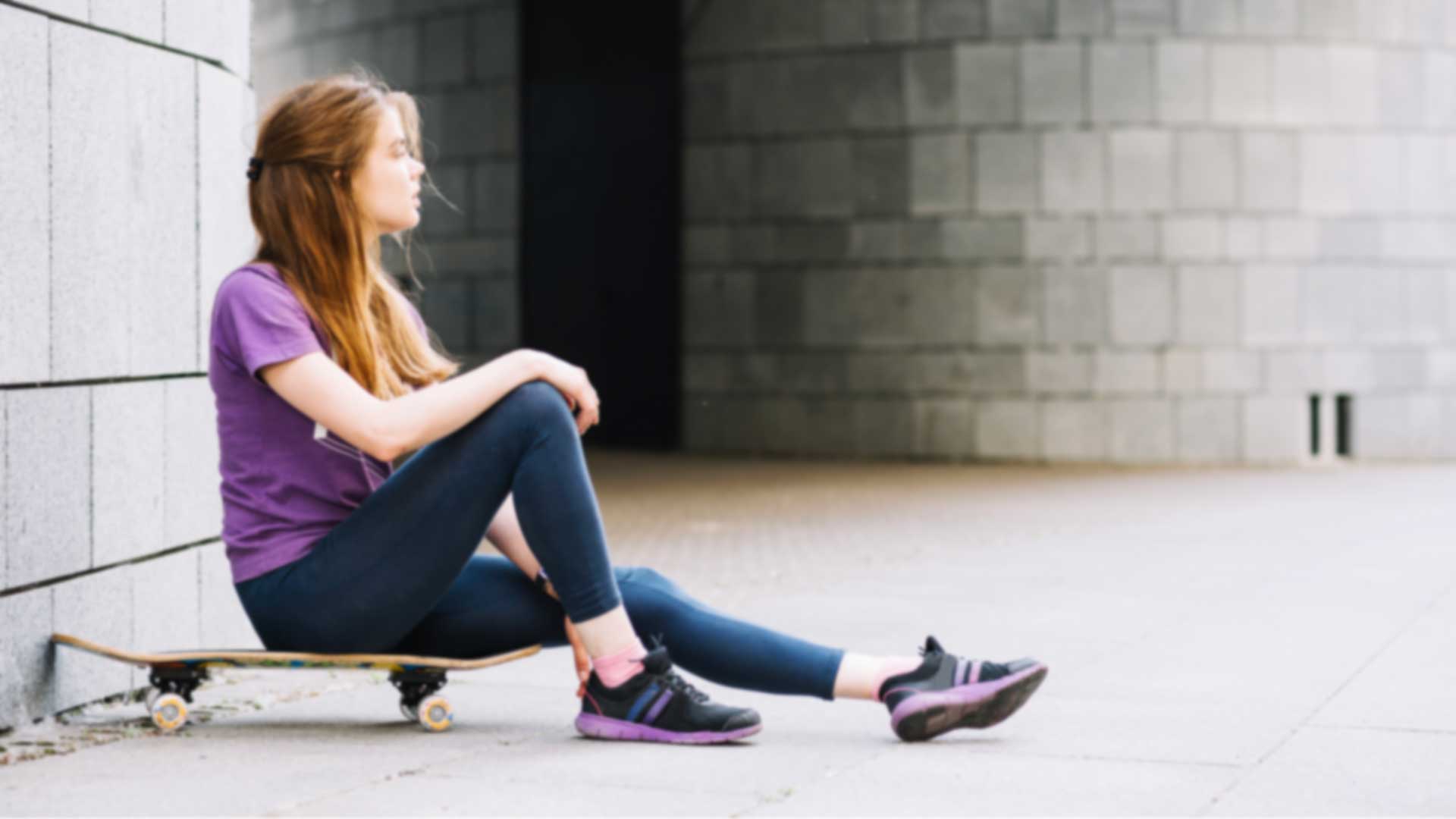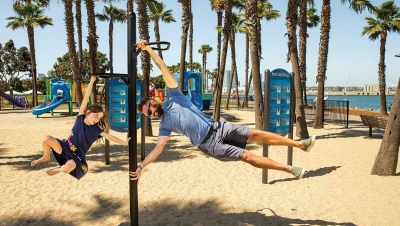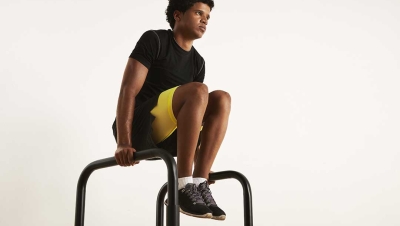Lifestyle changes for today's youth
Research on the value of play is often focused on the benefits play offers young children, not the adolescent and teenage players. Beyond participation in organized sports, teens represent the intersection of two distinctly different trends. On one hand, there is a growing interest among teens in active or extreme sports. On the other, engagement in sedentary activities is on the rise and, subsequently, so is the incidence of obesity. Looking to improve opportunities for adolescent and teen play/recreation should focus on taking these two trends into account by finding safe ways for teens to participate in active recreational sports and simultaneously finding ways to get teens motivated to actively engage in physical activity.
Active Sports
As a group, teens and young adults participate in physically demanding activities like swimming, running, hiking, and organized sports more than any other age group. Teens are also interested in participating in extreme or active sports, like rollerblading, skateboarding, surfing and scootering. An article in the August 18, 2002, edition of the New York Times reports on the increase in the popularity of action sports, particularly skateboarding. This specifically pertains to the teenage demographic where 62 percent of inline skaters are under the age of 18 years. These activities have a tremendous influence on teen culture as they play a large part in teen fashion, music, and entertainment. The interest shown in physically demanding activities like action sports has led many parks directors to change how they plan parks and activities for teens.
A recent survey conducted by a city parks department found that adolescents and teens most wanted a skate park as an improvement to existing city parks—a finding that is being mirrored across the country. Finding places to participate in these activities can be difficult as more and more shopping malls and city centers pass ordinances to eliminate skating and skateboarding.
To respond to this teen-play need, many cities are installing skate parks and are reporting that they are very successful despite many worries such as injuries and graffiti. Risk-taking, which can lead to injuries, is common for teens and is a normal part of healthy human development. Research has shown that injuries to skateboarders per participant are less frequent than in other activities like soccer, baseball, and basketball, and tend to occur most frequently to novice skaters. In addition, most players injured in skating are not wearing protective gear—despite their ownership of it. As a result, mandating protective gear like helmets and elbow pads is becoming common in city-run skate parks.
Extreme sports have become so popular they no longer seem extreme (Cleland, 2001, 22).
Skaters have also proven to take an interest in maintaining skateparks. Self-policing by skaters is common as older, more experienced skaters tend to initiate younger skaters into the sport, discouraging graffiti and littering. Cities interested in promoting active sports can learn a great deal from the successful design of parks to meet the needs and interests of teens.
Obesity
Not all teens are interested in action sports, and finding ways to keep all teens active should be a major concern for local authorities. The rate of obesity has doubled among children and teens—the most recent statistic reports that about 14 percent of teens are considered obese. Obesity puts teens at greater risk of heart disease and diabetes, low self-esteem, and depression. A large part of the problem is that most teens are not active enough: only one out of three teens is active five or more times a week. The others typically spend between 19 and 30 hours per week participating in sedentary activities such as streaming videos and playing computer or video games. This is on top of the largely 40 hours a week spent in sedentary activities at school.
Getting teens to become more active is one way to combat obesity, but it is not an easy lifestyle to change. A great majority of this population is not motivated to participate in team sports or challenging physical activities. Overweight teens prefer programs that encourage physical, but not strenuous, activities. Successful programs for weight loss among teens have focused on having them engage in less intensive physical activities which can be sustained for longer periods; activities such as swimming and walking. They also request programs that encourage activities such as weight training, Frisbee, yoga, and hiking over therapeutic programs which emphasize discussions and talking. They also prefer programs that promote healthy lifestyles rather than weight control.
Severly obese American children aged 6 to 10, are now dying from heart attacks caused by their weight (Schlosser, 2001, 242)
Preparing For Teen Play
To meet the needs of teen play, facility designers and program planners should take into consideration the desires, interests, and ranges of abilities of teens. For example, the inclusion of a large bike course and ramps of various challenge levels creates a space for bikes, blades, and boards. Also including things like rock-climbing walls and skate rinks provides opportunities for less fit teens who are working toward self-improvement. These are safe and positive spaces for the active play styles of adolescent and teenage youth.
References:
- Chapman, S., Webber, C, and 0'Meara, M. (2001). Scooter injuries in children. Journal of Pediatrics and Child Health, 37(6), 567-570.
- Cleland, K. (2001). Action sports form fabric of generation. Advertising Age, 72(16), 22-23.
- Payne, T. (1997). We're going to build a what? City-run skate parks are not a recipe for disaster. Parks and Recreation, 32(7), 54-61.
- Schlosser, E. (2001 ). Fast Food Nation. New York, NY: Harper Collins Publishers.
- Sedentary Teens (2000). Healthy Weight Journal, 6, 83.
- Sothern, M. (2001). Exercise as a modality in the treatment of childhood obesity. In D. Styne (ED.)
- Childhood and adolescent obesity. Philadelphia: W.B. Saunders Company.
- Sztainer, D. (2000). Teens say 'don't just sit there, do something!' Brown University Child and Adolescent Behavior Letter, 16(6), 5.
- University of Missouri (2001, November). Missouri families: Learning opportunities for families. Nutrition and fitness. [Online].
- Wellner, A. (1997). Americans at play: Demographics of outdoor recreation and travel. Ithaca, New York: New Strategist Publications Inc.
- Winn, K. (1998). The politics of building a skate park. Parks and Recreation, 33(7), 52-57.
- Wise, M. (2002, August 18). The New York Times, p. 2.
Co-authored by John A Sutterby, Candra D. Thorton, Pei-San Brown
















Add new comment